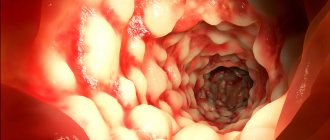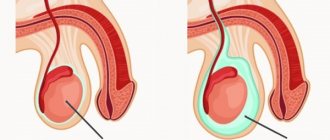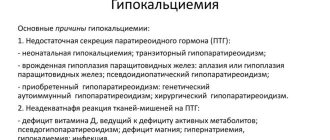And there are quite understandable prerequisites for this. People are constantly in a hurry to get somewhere, solve urgent problems, report for work done and listen to dissatisfaction, reproaches and complaints from their superiors for unfulfilled work. Those tasks and actions for which enough time was allocated a hundred years ago now need to be done in a couple of hours. At the beginning of the 20th century, a professor gave one lecture a week, with at least six days to prepare, but modern teachers often have three, four, or even five lectures every day. According to analysts, the amount of information on the Internet doubles every year and a half. Such a sudden acceleration of life and an information explosion cannot but affect a person’s mental health.
This is why the number of people with anxiety disorders is growing. At the same time, the number of registered cases, which is, of course, less than it actually is, is due to the fact that the population begins to get used to psychiatrists, accept them, cease to be afraid and increasingly seek help. If previously a person preferred to sit at home and not tell anyone about his problems, then with the growth of the level of culture, we more often come for consultations with specialists with the prefix psycho-, making, of course, the right decision.
It often happens that people with anxiety disorders turn not to psychiatrists, but to general practitioners (therapists, neurologists, cardiologists, family doctors, etc.). Often these requests are not related to a specific disease from which the person actually suffers, although, of course, in this case, anxiety may arise in connection with the occurrence or presence of somatic diseases. Quite often, people do not turn to a psychiatrist for help due to the fact that anxiety is often manifested by somatic symptoms - nausea, flatulence, redness or paleness of the skin, headaches and other manifestations.
Benefits of Anxiety
Let's start with the fact that anxious people tend to perform their functions more pedantically and responsibly.
Thanks to their accuracy, perfectionism, and tendency to double-check everything, they make fewer mistakes, and, as a result, these people, we note, quickly move up the career ladder.
They are very grateful for positive assessment of their work, because... constantly worry about its quality. This is an incentive for them to grow and develop further. A negative assessment, on the contrary, is destructive for them.
Can you imagine what kind of fantasies can come to the mind of an anxious person if he is constantly in doubt. Including constructive ones!
Anxiety stimulates the body's adaptive functions. In simple words, such a person is always prepared for the worst to happen.
And, as a result, he is sincerely happy about the peaceful flow of things and stability.
What’s also interesting is that anxiety determines people’s ability to enjoy ordinary life situations.
For example, a person is worried that he has few friends and suddenly he is invited to spend time in a large company. Of course, he will be happy about this fact much more than those who regularly attend parties and meet with friends.
Worry about what might happen makes a person careful in his contacts, choice of means and places of leisure, and professional activities. Such people are much less likely than others to become victims of criminals or some unpleasant situations.
However, with everything that I described above, a high level of anxiety has many more disadvantages than advantages.
Causes of the disease
Unfortunately, today there are no reliable facts that could tell us about the reasons for the development of personality disorders. According to scientists, a constant feeling of anxiety and fear has nothing to do with character traits or the influence of an unfavorable social environment. In most cases, the cause of the development of the disease is a combination of negative factors, among which we should highlight an unfavorable environmental situation, prolonged nervous overexertion, stress and disturbances in the functioning of the brain.
It is the problems associated with impaired functionality of the parts of the brain that are responsible for the manifestation of various emotions that are the primary cause of pathology. The cause of such disorders is closely related to the long-term influence of stress. Constant stimulation of the nervous system leads to the destruction of neural connections that transmit information between different parts of the brain. Research into this personal disorder has revealed that people with this disorder have subtle changes in certain areas of the brain. These departments are responsible for memory, which is associated with strong emotional shocks.
For people with any type of anxiety disorder, the persistent and core emotions are worry, severe worry, and fear.
Also, according to researchers, there is a high probability of a negative influence of hereditary factors. In addition, an important role is played by various social factors (psychotraumatic circumstances), which can cause the development of pathology in individuals with a hereditary predisposition.
Cons of high anxiety levels
Negative negative emotions accompany almost all events that occur in a person’s life. Be it the notorious meeting with friends or speaking at a meeting.
A person may worry about the most insignificant things: uncertainty in his own opinion, knowledge, doubts about the adequacy of his appearance to the existing situation, fears and phobias.
Trying to somehow calm himself down, an individual may unconsciously resort to obsessive actions (monotonously rocking on a chair, tapping his fingers on the surface of the table, scratching various parts of the body).
A state of anxiety can also be accompanied by a variety of obsessive thoughts that reduce productivity and performance.
A person spends too much time controlling himself and the world around him, so he has no energy left for new interesting projects, travel, and acquaintances.
Types of anxiety
Despite the fact that we are talking today about increased anxiety in adults, the following two types of anxiety are typical for all age groups.
Situational anxiety
It always appears when there is a real threat and aims to prepare the body for survival in difficult conditions. It would seem that the same danger for everyone should evoke the same feelings, but this is not so.
Studies have shown that under the influence of unpleasant situations (pain, threat, danger), the differences between highly anxious people and people with low levels of anxiety become most noticeable.
People with a high level are more prone to dramatize events, find it difficult to collect themselves, and are more prone to panic. People with a low level are less sensitive, more collected, and inclined to adequately assess the situation.
In professional activities, these differences must be taken into account when managing personnel. Those with a high level of anxiety work more productively if the results of their work are highly appreciated, praised, and approved of their actions. Individuals with a low level of anxiety begin to work productively if they are informed about the failure of their project or poorly performed work.
If you scold those with high anxiety and praise those with low anxiety, then it’s time to close the enterprise; the work efficiency of both categories will be extremely low.
This type of anxiety depends to a greater extent not on a specific individual, but on the circumstances in which the individual is forced to function. When difficult circumstances arise, at first there is a surge of strength and vigor, the heartbeat quickens, all cognitive functions work to the limit of their capabilities, and strength appears to fight the causes of stress.
However, if a threatening situation lasts for a long time, then one can observe a drop in concentration, decreased performance, fatigue, asthenia and nervous exhaustion.
Personality anxiety
If the situational one manifests itself only under certain conditions, then the personal one is a relatively constant character trait. It is determined by life experience (read, the number of unpleasant situations experienced), character accentuations, and upbringing. The character of each person is unique, like his fingerprints, but some things can be generalized.
With high personal anxiety, a person perceives most situations as threatening.
Naturally, if they are threatening, it means that he reacts to them with a state of severe anxiety, which in many cases leads to emotional stress and negatively affects somatic health.
In fact, personal anxiety is a fictional situational one, it is a constant readiness for trouble.
An extreme variant of personal anxiety is generalized anxiety syndrome.
Negative emotions and obsessive thoughts arise even in completely insignificant, abstract, fictitious situations.
In addition to anxiety and suspiciousness, a variety of somatic disorders can be noted:
- difficulty breathing,
- rapid swallowing,
- dry mouth,
- sweating,
- nausea,
- dyspnea,
- gastrointestinal disorders.
General anxiety syndrome is one of the types of disorders that are almost impossible to cure on your own.
! If your anxiety has a serious response in the physiology of the body, it’s time to consult a specialist.
How to determine what type of condition your condition is?
A simple Spielberg-Hanin test can help with this. To take the test, you must fill out two question forms. I won’t list them here (they can easily be found on the Internet; just type the name of the test into the search bar).
Questions must be answered quickly. The most correct answer is the one that comes to mind first.
And also, when filling out the test, do not try to “look beautiful”, otherwise the results will be unreliable.
Symptoms of Anxiety Disorder
The sensations that accompany anxiety disorders can be divided into 2 types, with the following symptoms:
- Somatic , which manifest themselves physically: palpitations, indigestion, trembling of hands and legs, increased sweating, a feeling of a lump in the throat, muscle tension, sleep disturbances ending in a panic attack.
- Psychological symptoms of anxiety are expressed in depression, fear of death, emotional tension, hypochondria.
All these attacks occur suddenly, but do not pass without a trace on the body, threatening to develop into mental pathologies.
How to get rid of anxiety?
If we are talking about situational anxiety, then everything is simple, just remove the source. Or make sure that the situation does not happen again. I immediately hear waves of indignation, which vying with each other tell me that the source of problems cannot always be eliminated.
For example, inappropriate behavior of a manager. Or caring for an elderly person. Or litigation.
In this case, consider the source of irritation and anxiety as temporary and use every opportunity to change your own life.
Look for new sources of income, increase your competence in certain matters, treat unpleasant people from the height of your wisdom and life experience.
Remember, those who try to hurt others are adults who suffer a lot. A truly happy person is incapable of squabbles, gossip and meanness.
This is how we smoothly approached the most important thing - personal anxiety.
And this is exactly the factor that you can influence on your own.
It is possible to cope with high anxiety by following simple rules.
Don't avoid unpleasant situations
Face your problem, your irritating factor.
Break down your dissatisfaction, your fear into small pieces. Rationalize, ask the right questions.
As an example, consider the fear of being called “on the carpet” to a manager.
What scares you? Reprimand, fear of unemployment, humiliation, insulting words?
Imagine what you will do if your worst expectations come true? Will you find a new job, perhaps with a different, more loyal boss and a high salary? Have you tried it?
Well, are you scared now too? Agree, after such an exercise, anxiety begins to recede.
Believe that it is possible to learn this skill. If it is difficult to do this on your own, contact a specialist.
Engage in self-development
If you have already started taking steps in the right direction, be patient.
You shouldn’t indulge yourself and worry additionally that results won’t appear instantly.
Therefore, do not leave yourself time for empty thoughts, occupy your brain with useful things.
Gym, yoga, dancing, creativity - choose what you like and take action.
Use light herbal preparations
Treatment and complete elimination of high anxiety with medication alone is impossible. They can temporarily relieve unpleasant symptoms.
Remember that the selection of medications is individual and should be prescribed by a doctor. You can take light herbal preparations (valerian, motherwort, mint, chamomile) on your own, provided there is no individual intolerance.
Find “your” psychotherapist
A good advertised specialist may not necessarily help you. Everything is very individual.
When choosing a psychotherapist, be guided by your feelings and intuition to a much greater extent than by the advice of your friends.
If you feel extreme discomfort, misunderstanding, mistrust, embarrassment, look for another specialist.












